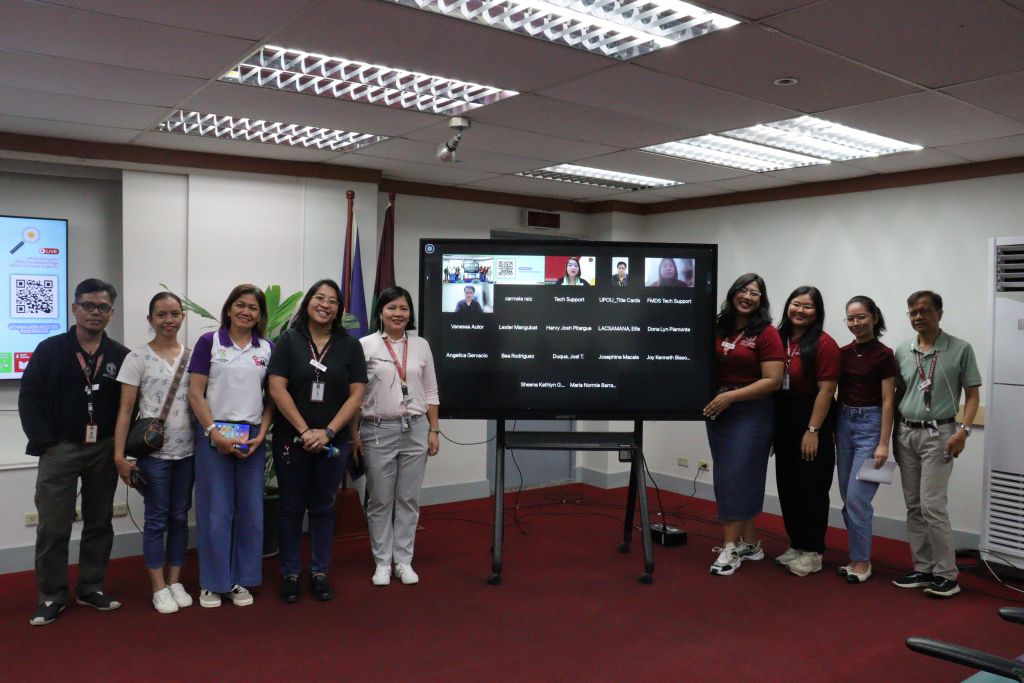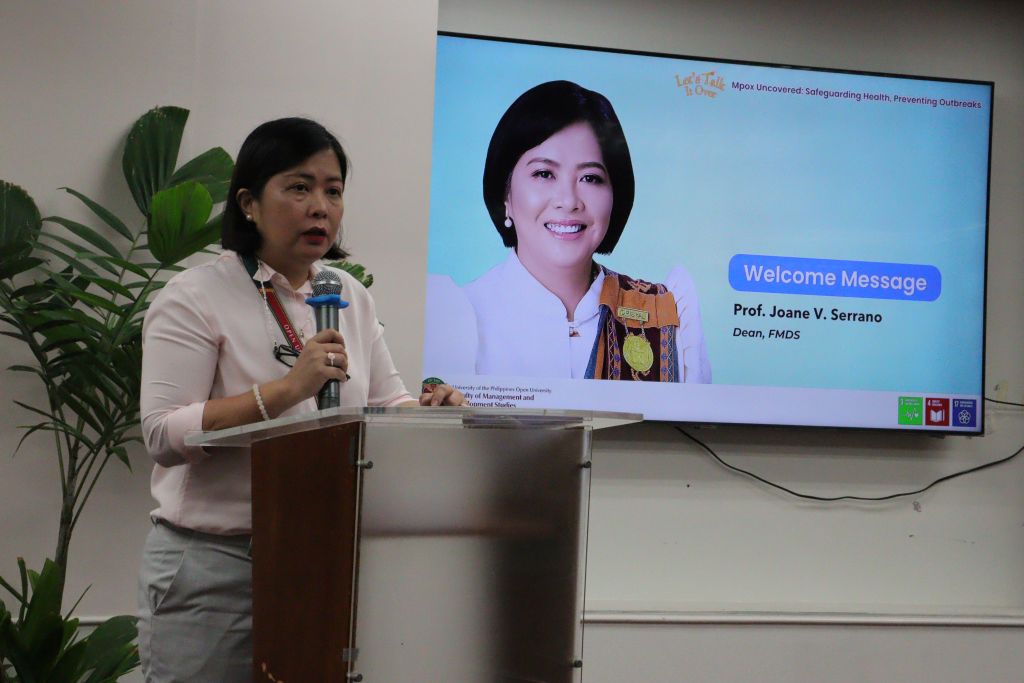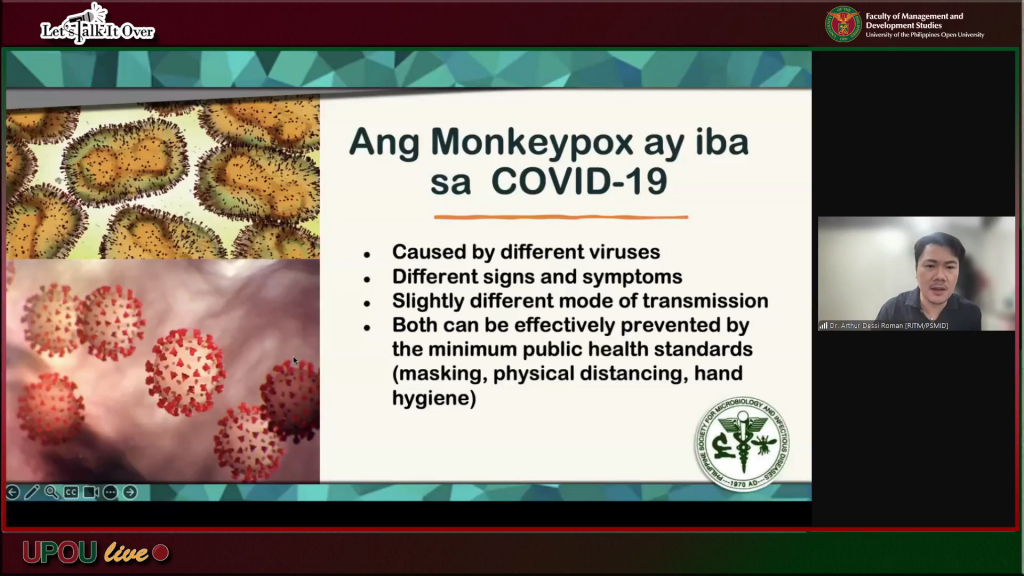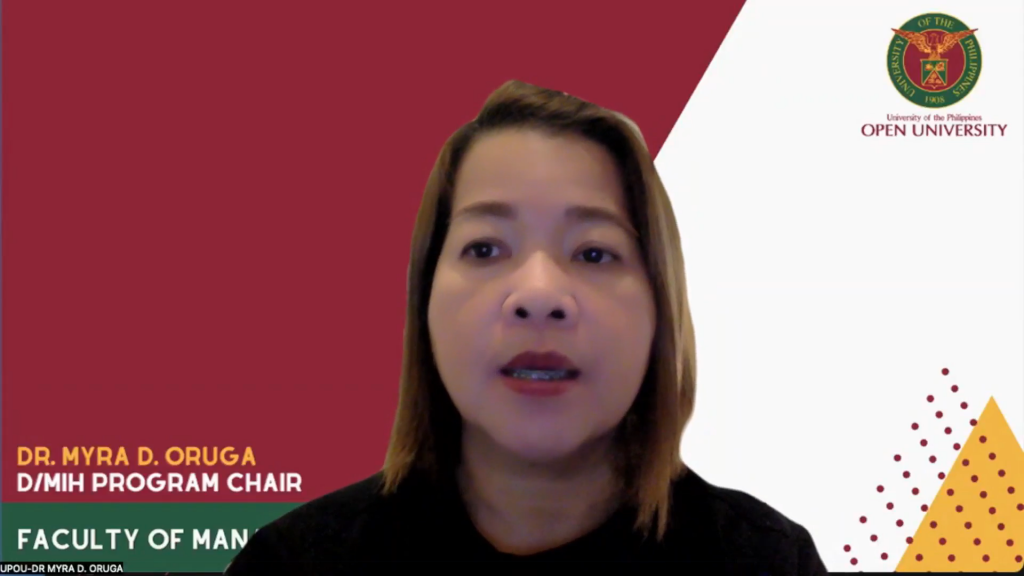
The University of the Philippines Open University’s Faculty of Management and Development Studies (FMDS) conducted the Let’s Talk it Over on “Mpox Uncovered: Safeguarding Health, Preventing Outbreaks” on 14 November 2024 at the UPOU Audiovisual Room and via UPOU live streaming platforms.
This event was part of FMDS’ initiative towards community inclusivity, digital transformation, and sustainability. It also aligns with various Sustainable Development Goals (SDGs), including Good Health and Well-being (SDG 3), Quality Education (SDG 4), and Partnerships for the Goals (SDG 17).
The webinar aimed to enhance awareness and preparedness about the Mpox virus, exploring its transmission, prevention, and response strategies while emphasizing the key responsibilities of individuals and relevant institutions in minimizing risks.

Dr. Joane V. Serrano, Dean of FMDS, opened the program with a welcome message highlighting how the LTiO Series serves as a valuable platform for sharing knowledge within the community. She also emphasized that it reflects the Faculty’s dedication to making education inclusive and accessible to everyone. She also pointed out that this month’s LTiO was particularly timely and important, as the topic has been a critical public health issue for several years.

Dr. Arthur Dessi Roman, a medical specialist from the Research Institute for Tropical Medicine (RITM), served as the speaker who spoke about the distinct characteristics of Mpox compared to other viruses. He explained its causes, transmission mechanisms, as well as the prevention and control measures that can be implemented, both in local communities and on a broader scale. Dr. Roman also stressed the importance of awareness, responsibility, and creativity in reducing the risk of contracting and spreading Mpox.
During the open forum, Dr. Roman emphasized the importance of awareness and risk avoidance in preventing the transmission of Mpox. He also addressed the potential for the virus to be transmitted to animals, though he noted that there is currently no antiviral treatment available for them.
“Mpox is not a difficult virus to kill,” Dr. Roman remarked. “Most of the time, it will heal on its own and they will only require supportive treatment,” he added.

To close the program, Assoc. Prof. Myra D. Oruga, Program Chair of Diploma in/ Master of International Health, expressed her gratitude to the speaker and participants who attended the said event. She encouraged the participants to apply the insights and actionable steps from the session to their professional and personal lives as well as to the community, to foster a healthier and safer future for everyone.
With a focus on prevention, the event underscored the shared responsibility of the community in addressing infectious diseases. Looking ahead, the knowledge gained from this session will be pivotal in preventing the spread of Mpox and improving health preparedness for emerging infectious diseases.
Written by Vanessa Autor♦ Edited by Larry Cruz ♦ Cross-posted from FMDS Website








